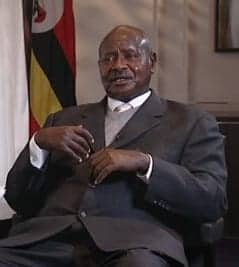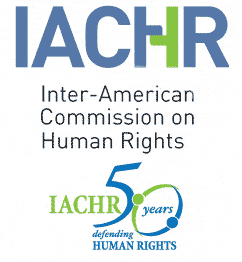BY ARI SHAW AND MAURICIO ALBARRACÍN / GlobalPost
Commentary: Human rights courts and commissions are the best tools to diminish violence and strengthen LGBT rights.
 BOGOTA — Will cuts to foreign aid as a response to anti-gay laws help the plight of lesbian, gay, bisexual and transgender (LGBT) people in Africa? The conventional wisdom seems to say “yes.”
BOGOTA — Will cuts to foreign aid as a response to anti-gay laws help the plight of lesbian, gay, bisexual and transgender (LGBT) people in Africa? The conventional wisdom seems to say “yes.”
Recent legislation in Uganda, which imposes a life sentence for “aggravated homosexuality” and criminalizes any promotion of homosexuality, has been rightly condemned as a violation of the fundamental equality and dignity of LGBT people.
In response, a number of Western countries, including Norway, Denmark and Sweden, have withdrawn foreign assistance, and the World Bank froze a $90 million loan to Uganda.
These actions, while understandable, are misguided.
Condemnation by foreign governments, including the United States, is an important symbolic measure and can help delegitimize anti-gay laws. Yet cuts in foreign assistance can have the unintended effect of emboldening homophobic rhetoric that links aid and LGBT rights to neocolonial intervention.
This would further endanger the lives of LGBT citizens in these countries.
Uganda's Anti-Homosexuality Act has received broad support among Ugandans. Its author has said that any costs in foreign aid are “worth it.”
 Meanwhile, activists report an increase in arrests and harassment of LGBT people, and a similar bill in Nigeria has led to a rash of mob violence against gays and lesbians.
Meanwhile, activists report an increase in arrests and harassment of LGBT people, and a similar bill in Nigeria has led to a rash of mob violence against gays and lesbians.
Foreign governments and international donors seeking to help should, instead, increase financial and technical support for African LGBT rights organizations and human rights institutions.
LGBT activists in many African states face highly restrictive and dangerous conditions that limit their ability advocate for reforms. In many cases, these laws not only discriminate against LGBT individuals but also criminalize or severely restrict public dissent and association around LGBT issues.
The burgeoning African system of human rights courts and commissions should be strengthened to provide an important and necessary tool for enhancing LGBT rights and activism in the region.
The experience of LGBT rights activism in another developing region — Latin America — offers insight into the roles regional human rights bodies can play.
In the past several years, advances in gay rights in Latin America have outpaced those in the United States and some European nations. Argentina and Uruguay, for instance, have full marriage equality, while Mexico, Brazil, and Colombia offer some form of legal protection for same-sex couples and families.
Violence and inequality persist, but in many national debates around LGBT rights, the Inter-American human rights system has been an important resource for gay rights activists.
 Individuals and nongovernmental organizations can appeal directly to the Inter-American Commission on Human Rights, which investigates and offers recommendations to remedy cases of human rights abuse.
Individuals and nongovernmental organizations can appeal directly to the Inter-American Commission on Human Rights, which investigates and offers recommendations to remedy cases of human rights abuse.
Consequently, the quasi-judicial commission has been an active forum for documenting and publicizing human rights abuses.
In the past five years, the commission has held 17 public hearings related to gay rights, same-sex unions, and homophobic violence in the Americas.
Since February 2012, it has issued 31 news releases drawing national and international media attention to the plight of LGBT communities in member countries and across the region.
The commission has also visited countries to highlight the negative conditions for LGBT people there. And, as of February 1, the commission has a permanent office with a mandate to monitor human rights abuses against lesbian, gay, bisexual, transgender, and intersex people.
The Inter-American Court of Human Rights only hears cases referred by the commission or from petitions by national governments, but its rulings are legally binding.
Most notably, in a 2012 case against Chile, the court ruled that sexual orientation and gender identity are protected categories under the American Convention on Human Rights. As a result, no domestic laws may be promulgated that restrict individual rights on these grounds.
The ruling has not only shaped the ongoing debate in Chile around marriage equality and same-sex families, but has also set binding precedent for national judges in member states facing same-sex marriage litigation.
The African regional human rights system might play a similar role in augmenting the work of LBGT rights activists in the region. Following the lead of its Inter-American organization, the African Commission could take a more active role as a public forum to highlight violence against LGBT people and publicly shame governments that fail to protect them.
Moreover, the commission could coordinate more closely with the tapestry of sub-regional African courts, such as the East African Court of Justice, that are increasingly asserting their jurisdiction to hear cases involving human rights violations.
To be sure, regional human rights systems are no panacea for ending human rights abuses against LGBT people. The process can be frustratingly slow, often taking years to reach a ruling.
These institutions lack strong enforcement powers, and some leaders openly defy their judgments. The African system in particular has faced charges of inefficiency, while the nascent African Court on Human and Peoples' Rights has struggled to become fully operational.
Regional human rights institutions can provide crucial publicity, legitimacy and legal precedent for LGBT rights activists in the face of stifling national laws.
A strengthened African regional human rights system can bypass critiques of foreign intervention and create external pressure on national governments that bolsters the work of local activists. The best lesson from LGBT activism in the Inter-American system is that the amplified voices of citizens are often the most persuasive.
Ari Shaw is currently a Fulbright Scholar in Colombia researching the impact of international law on LGBT activism. Mauricio Albarracín is a lawyer with Colombia Diversa, a national LGBT rights organization based in Bogotá.



